
Eichler Was 60 Years Ahead of His Time
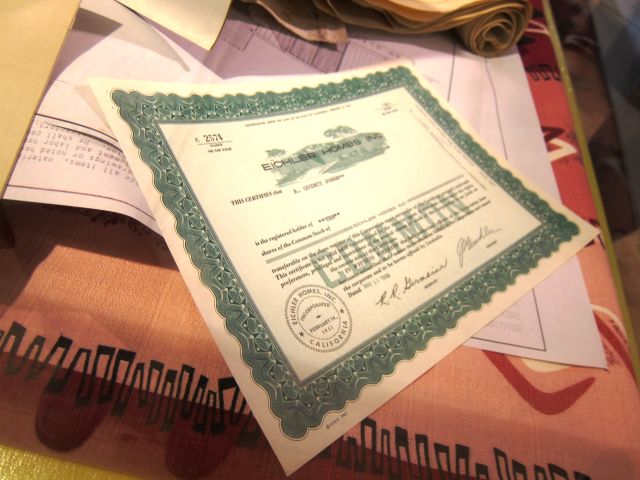 |
|
|
Are profits really what it is all about? When making decisions, should corporate CEOs pay attention to nothing but fattening the wallets of their shareholders? For years, perhaps forever, the answer has been yes. But no more.
On August 19, 2019, the Business Roundtable, which represents 192 of the country’s largest companies, “redefined the purpose” of corporations, the group said in a statement that was signed by 182 CEOs.
Joe Eichler would have been pleased. The change in definition adopted in 2019 follows the principles he and his firm, Eichler Homes, had been following since 1949.
According to the new “statement on the purpose of a corporation,” in addition to “generating long-term value for shareholders,” corporations should deliver value to customers, invest in their employees, including “supporting them through training and education,” deal fairly with suppliers, and support “the communities in which we work.”
Rep. Joe Kennedy (D-Mass.) called it “a welcome step toward a more moral capitalism.”
From the beginning, the late Ned Eichler recalled in an interview, his dad built and sold houses for more than the profits.
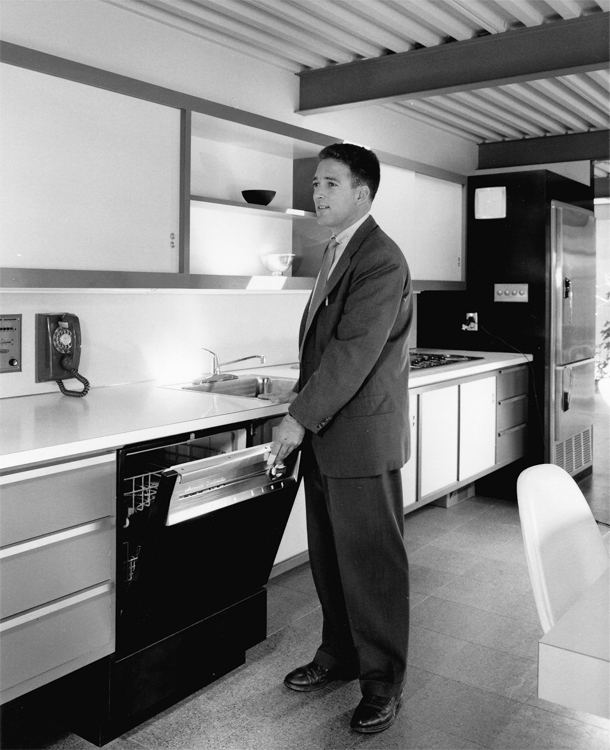 |
|
|
Ned recalls talking to another housing developer back in the ‘50s, who had wondered why Eichler Homes sold homes to black people. It would drive away other customers, the man said. Ned could not disagree on that point. But he said it didn’t matter to Joe.
“Larry, I said, you’re never going to understand my father,” Ned said. “Your whole interest is making the maximum amount of money. That is not his whole interest. You are you and he is he.”
“For us, it wasn’t a benefit to our business,” Ned said of the open housing policy. “We would have been better off if we didn’t do it. Somebody looking at our homes, if they asked a broker about resale value, they’d all tell them not to buy for this reason.”
Indeed, if money were Joe’s sole motivation, there are many other things he would never have done. Ned, who worked alongside his dad in the family business for many years, agreed with the stance on open housing.
But he strongly disagreed with his dad about other strategies that were adopted in large part to provide social benefits.
These included Eichler Homes move into large-scale, mass housing in redevelopment areas in San Francisco, including building apartments in the troubled Tenderloin. Ned said Joe was motivated to do so from idealism, and “and partly ego.”
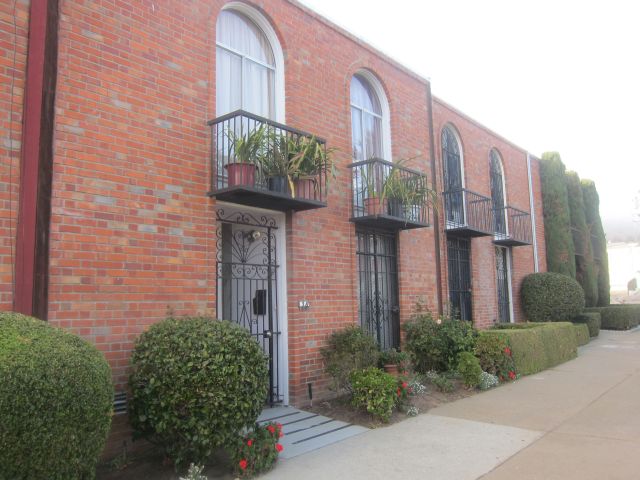 |
|
|
Joe built high-rise towers and low-rise units in the southern part of the city as well, aimed originally at a mixed market. They ended up as subsidized housing.
“I said, this is going to be a disaster,” Ned recalled about the urban ventures, “and it’s going to divert our attention from problems we were having with the regular business.”
Joe also made a pitch to develop homes in the Golden Gateway redevelopment project, near San Francisco's Embarcadero, but it did not get selected.
Joe Eichler was “absolutely secular, not even Jewish culturally. Not really,” Ned says. But he was inspired by Jewish tradition.
“My father said there were two obligations for Jews. To educate, and if you were financially successful, to help the poor. For him, this was a responsibility for Jews.”
Joe Eichler was a dedicated liberal who was involved in many causes and a significant donor to the Democratic Party. He could also be defined as a 'houser,' a term in wide use in the 1950s and beyond for people who argued that everyone deserved clean, safe housing – and who worked to provide it.
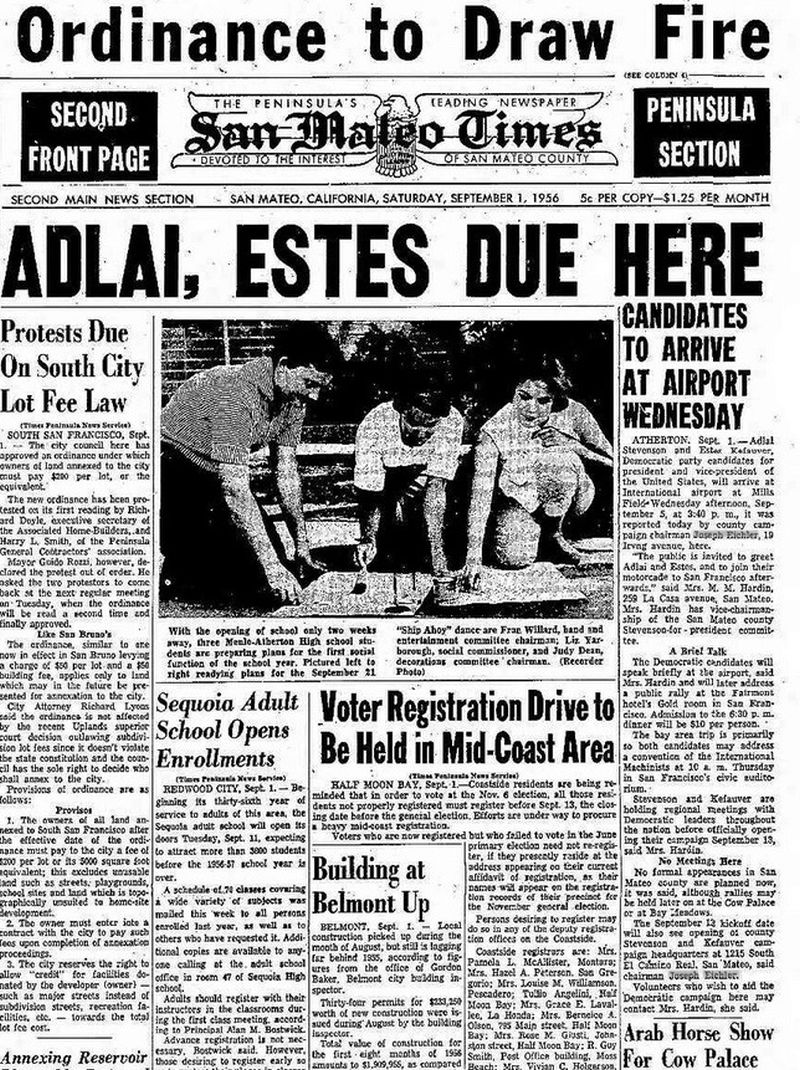 |
|
|
Among those in Joe’s circle who also fell into this category was his architect, Bob Anshen. In a 1944 article he co-authored with his wife, Eleanor, Anshen called for a nationwide mass-public-housing program after the war.
Another houser in the Eichler circle was Jim San Jule, a former hobo, longshoreman, and wartime member of the OSS. A friend of Anshen, he joined Eichler Homes in its formative years, handling marketing, permitting, and more.
San Jule would go on to advocate for, and help build, subsidized and other low cost housing for another 50 years. For a time, he and Joe were very close, Ned recalled. He said, “They had a relationship that was almost like a love affair.”
The way Joe ran Eichler Homes also suggests an interest in benefitting others. He was known for paying his employees well and, unlike most homebuilders at the time, for employing the carpenters who built the homes, rather than bringing them in as contractors on a job-by-job basis.
That provided Joe with a loyal and knowledgeable workforce – and provided the staff and crews with an assured salary throughout the year.
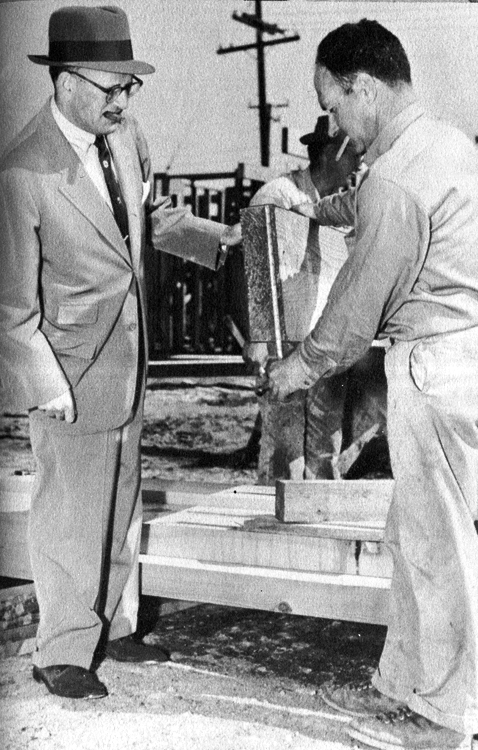 |
|
|
(After Eichler Homes went bankrupt and Joe continued building homes as a smaller operation, he no longer employed carpenters directly.)
It’s not clear to what extent Joe provided workforce education – but he did offer training in art. Artist Matt Kahn, who designed Eichler model homes and graphics for Eichler, taught art classes for employees.
Many of the people who worked for Eichler Homes did so for many years, both as worksite employees and office staff.
“He got a lot of loyalty from one aspect of personality he and I share,” Ned remembered. “He was absolutely without any class prejudice. The idea of class never entered his mind. To him, people were people.”
“He treated these guys with real respect,” Ned said of the carpenters. “People who worked with their hands. Maybe I learned it from him.”
- ‹ previous
- 200 of 677
- next ›



